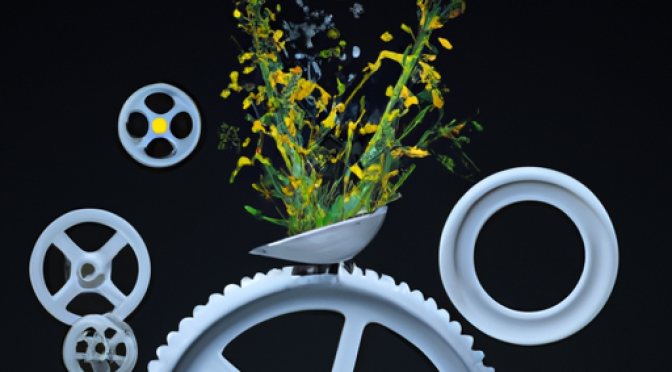Introduction
In recent years, the need for sustainable farming practices has become increasingly important. One area where advancements are being made is in the development of biodegradable equipment components. Artificial Intelligence (AI) algorithms have emerged as a powerful tool in this field, enabling researchers and engineers to design and optimize biodegradable materials for farming equipment. This article explores how AI algorithms can assist in the development of biodegradable equipment components for sustainable farming.
Understanding Biodegradable Materials
Biodegradable materials are substances that can be broken down by natural processes, such as microbial action or exposure to sunlight, into simpler compounds that are harmless to the environment. These materials offer a sustainable alternative to traditional non-biodegradable materials, which can persist in the environment for hundreds of years.
Role of AI Algorithms
AI algorithms play a crucial role in the development of biodegradable equipment components for sustainable farming. They enable researchers to analyze vast amounts of data and simulate various scenarios to identify the most suitable materials and designs. By leveraging machine learning techniques, AI algorithms can learn from existing data and make predictions about the performance and biodegradability of different materials.
Data Collection and Analysis
AI algorithms assist in the collection and analysis of data related to biodegradable materials. They can gather information from various sources, including scientific literature, experimental data, and material databases. By analyzing this data, AI algorithms can identify patterns and correlations that humans may overlook, leading to more informed decision-making in the development process.
Material Design and Optimization
AI algorithms can also aid in the design and optimization of biodegradable equipment components. By using computational models and simulations, researchers can test different material compositions and structures virtually, reducing the need for costly and time-consuming experimental trials. AI algorithms can suggest optimal designs based on desired properties, such as strength, flexibility, and biodegradability, leading to more efficient and sustainable farming equipment.
Challenges and Limitations
While AI algorithms offer significant benefits in the development of biodegradable equipment components, there are also challenges and limitations to consider. One challenge is the availability of high-quality and diverse data for training AI models. Additionally, the complexity of biodegradable materials and their interactions with the environment pose difficulties in accurately predicting their behavior. Ongoing research and collaboration between AI experts and material scientists are essential to overcome these challenges.
Conclusion
AI algorithms have the potential to revolutionize the development of biodegradable equipment components for sustainable farming. By leveraging data analysis and machine learning techniques, researchers can accelerate the design and optimization process, leading to more environmentally friendly farming practices. While challenges exist, continued advancements in AI technology and collaboration among experts will drive the progress towards a more sustainable future in agriculture.

